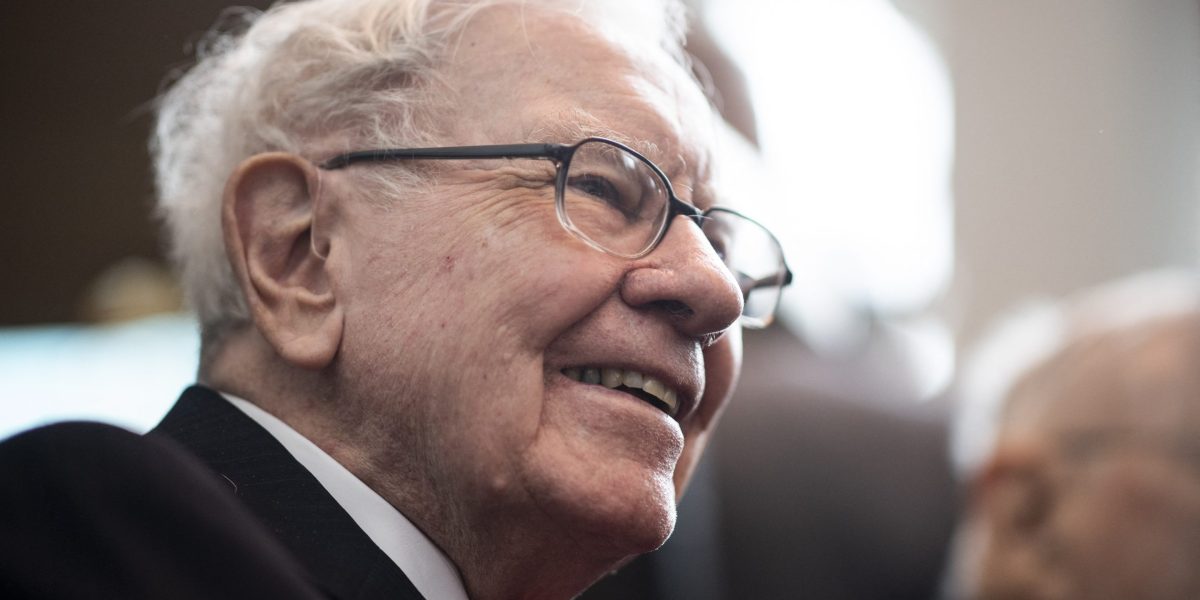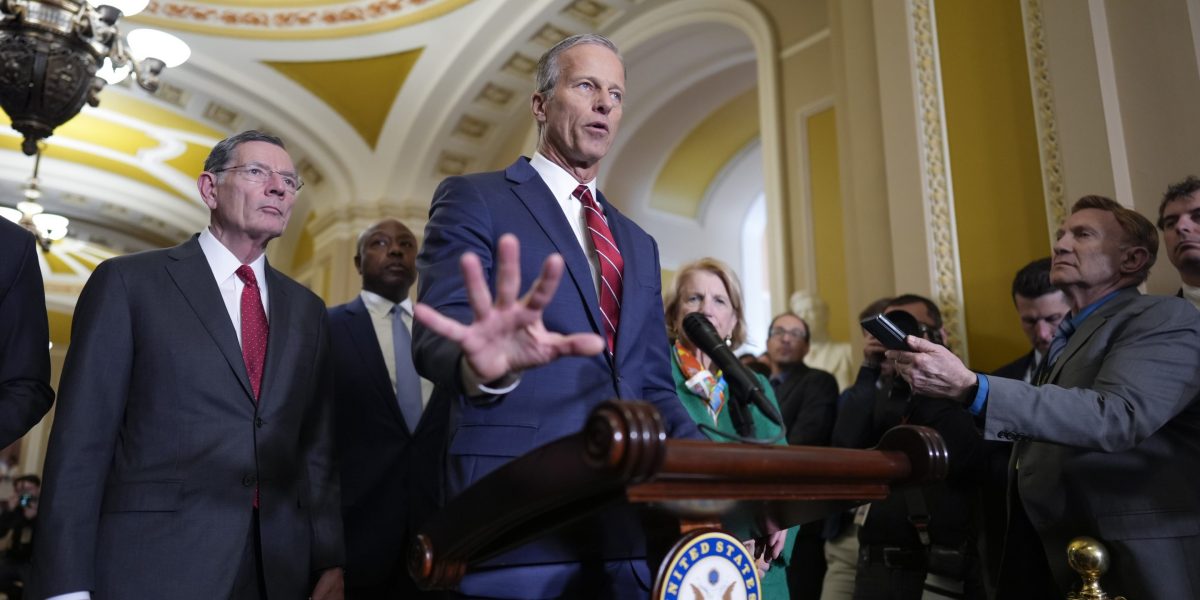Senate Republicans plugged away overnight and into early Saturday morning to approve their multitrillion-dollar tax breaks and spending cuts framework, hurtling past Democratic opposition toward what President Donald Trump calls the “big, beautiful bill” that’s central to his agenda.
The vote, 51-48, fell along mostly party lines, but with sharp dissent from two prominent Republicans. It could not have come at a more difficult political moment, with the economy churning after Trump’s new tariffs sent stocks plummeting and experts warning of soaring costs for consumers and threats of a potential recession. Republican Sens. Susan Collins of Maine and Rand Paul of Kentucky both voted against the measure.
But with a nod from Trump, GOP leaders held on. Approval paves the way for Republicans in the months ahead to try to power a tax cut bill through both chambers of Congress over the objections of Democrats, just as they did in Trump’s first term with unified party control in Washington.
“Let the voting begin,” Senate Majority Leader John Thune, R-S.D., said Friday night.
Democrats were intent on making the effort as politically painful as possible, with action on some two dozen amendments to the package that GOP senators will have to defend before next year’s midterm elections.
Among them were proposals to ban tax breaks for the super-wealthy, end Trump’s tariffs, clip his efforts to shrink the federal government, and protect Medicaid, Social Security and other services. One, in response to the Trump national security team’s use of Signal, sought to prohibit military officials from using any commercial messaging application to transmit war plans. They all failed, though a GOP amendment to protect Medicare and Medicaid was accepted.
Democrats accused Republicans of laying the groundwork for cutting key safety net programs to help pay for more than $5 trillion tax cuts they say disproportionately benefit the rich.
“Trump’s policies are a disaster,” said Senate Democratic leader Chuck Schumer of New York, as is Elon Musk’s Department of Government Efficiency, he added. “Republicans could snuff it out tonight, if they wanted.”
The Republicans framed their work as preventing a tax increase for most American families, arguing that unless Congress acts, the individual and estate tax cuts that GOP lawmakers passed in 2017 will expire at the end of this year.
The Senate package pulls in other GOP priorities, including $175 billion to bolster Trump’s mass deportation effort, which is running short of cash, and an additional $175 billion for the Pentagon to build up the military, from an earlier budget effort.
Wyoming Sen. John Barrasso, the No. 2 ranking Republican, said voters gave his party a mission in November, and the Senate’s budget plan delivers.
“It fulfills our promises to secure the border, to rebuild our economy and to restore peace through strength,” Barrasso said.
The framework now goes to the House, where Speaker Mike Johnson, R-La., could bring it up for a vote as soon as next week as he works toward a final product by Memorial Day.
The House and Senate need to resolve their differences. The House’s version has $4.5 trillion in tax breaks over 10 years and some $2 trillion in budget cuts, and pointed at changes to Medicaid, food stamps and other programs. Some House Republicans have panned the Senate’s approach.
Republican senators used their majority to swat back Democratic amendments, often in rambunctious voice votes.
Among the more than two dozen amendments offered were several to protect safety net programs. Several Republicans, including Sen. Josh Hawley of Missouri, joined Democrats in voting to preserve some of those programs, particularly regarding health care. Collins opposed the entire package in a warning against steep Medicaid cuts.
Collins said the potential reductions for that health program in the House bill “would be very detrimental to a lot of families and disabled individuals and seniors in my state.”
Paul questioned the math being used by his colleagues that he said would pile on the debt load. “Something’s fishy,” he said.
One Republican, Sen. Bill Cassidy of Louisiana, expressed his own misgivings about tax breaks adding to the federal deficits and said he has assurances that Trump officials would seek the cuts elsewhere.
“This vote isn’t taking place in a vacuum,” he said, a nod to the turmoil over Trump’s tariffs.
One crucial challenge ahead will be for the House to accept the way the Senate’s budget plan allows for extending the tax cuts under a scoring method that treats them as not adding to future deficits, something many House Republicans reject. A new estimate from the Joint Committee on Taxation projects the tax breaks will add $5.5 trillion over the next decade when including interest, and $4.6 trillion not including interest.
On top of that, the senators added an additional $1.5 trillion that would allow some of Trump’s campaign promises, such as no taxes on tips, Social Security benefits and overtime, swelling the overall the price tag to $7 trillion.
Republicans are also looking to increase the $10,000 deduction for state and local taxes, something that lawmakers from states such as New York, California and New Jersey say is necessary for their support.
The House and Senate are also at odds over increasing the debt limit to allow more borrowing. The House had boosted the debt limit by $4 trillion in its plan, but the Senate upped it to $5 trillion to push any further votes on the matter until after next year’s midterm elections.
The Senate calls for just $4 billion in spending cuts, but GOP leadership emphasizes that’s a low floor and that committees will be on the hunt for far more.
Already, the GOP leaders are confronting concerns from fiscal hawks who want trillions of dollars in spending cuts to help pay for the tax breaks. At the same time, dozens of lawmakers in swing districts and states are worried about what those cuts will mean for their constituents, and for their reelection chances.
The GOP leadership has encouraged members to just get a budget plan over the finish line, saying they have time to work out the tough questions of which tax breaks and spending cuts to include.
Extending the the 2017 breaks would cut taxes for about three-quarters of households but raise them for about 10%. In 2027, about 45% of the benefit of all the tax cuts would go to those making roughly $450,000 or more, accordingto the Urban-Brookings Tax Policy Center, which analyzes tax issues.
This story was originally featured on Fortune.com
Source link


 Entertainment8 years ago
Entertainment8 years ago
 Politics8 years ago
Politics8 years ago
 Entertainment8 years ago
Entertainment8 years ago
 Entertainment8 years ago
Entertainment8 years ago
 Tech8 years ago
Tech8 years ago
 Tech8 years ago
Tech8 years ago
 Tech8 years ago
Tech8 years ago
 Politics8 years ago
Politics8 years ago






